Lovecraft was a racist. What do we do with That?
The series premiere of Lovecraft Country touched down on HBO two weeks ago. Most notably, it boasts Jordan Peele as an executive producer: patron saint of forcing white people to come to terms with their ingrained racism by “infiltrating” primarily white-led genres of Horror and SciFi. And based on the first episode, the show promises to pack quite the wallop.
It’s a period piece! It’s a monster thriller! It’s an action vehicle with a charming protagonist you can really get behind!
It also stares you in the face with this question: How do you begin to reconcile your love of SciFi with the fact that so many of its earliest storytellers were overt racists?
The particular struggle of enjoying SciFi adventure stories as a person of color is singularly captured in a conversation at the start of the pilot episode between leading man Atticus Freeman and an old woman he’s traveling with: he tells her what he’s reading (Edgar Rice Burroughs’ Princess of Mars, to be exact), she returns with her reservations on the irreconcilable fact that the protagonist is an ex-Confederate, and he volleys back with “Stories are like people – loving them doesn’t make them perfect. You just try to cherish them and overlook their flaws.” She quietly regards him, says “The flaws are still there,” and leaves it at that. And therein lies the core struggle at the heart of the show, and by proxy that of pulp fiction aficionados everywhere.
H.P. Lovecraft remains one of the most enduring (and endeared) fathers of SciFi and Horror. His writing is elegant, stylish, transporting. He was also extremely, undeniably racist. And you know what? We don’t get to separate one fact from the other. Especially white genre fans. Especially me, a white woman who co-founded a SciFi film festival whose very first poster features Lovecraft’s most famous fictional creation: Cthulhu.
So what do we do? Stick our head in the sand and ignore the problematic viewpoints of the forefather of our favorite genre? Remove Lovecraft from the canon because of his shameful, xenophobic rants? In an excellent Vox article about this subject (seriously, read it), Black Horror novelist Victor LaValle puts it thus: “He’s so woven in, I think for horror as a whole, it would feel to me a little bit like removing an arm. And so instead I feel like an alternative choice is to identify the illness and then maybe you can save the arm.”
Part of this “illness identification” can perhaps come from looking closer at the most common denominator of Lovecraftian horror: the startling realization that you’re not the only one in the world. LaValle doesn’t mince words about this. “The idea that you would be driven mad because you found out that the universe doesn’t think you’re special is a joke to me as a Black American.”
Lovecraft Country is perhaps so effective because it doesn’t hit you over the head with its message. The difficult pill of Lovecraftian politics is sugar coated as an enjoyable adventure thriller, with a family mystery at its core. That’s not to say that race relations aren’t present in nearly every frame of the show. It’s just that the racist elephant in the room shows itself in the details: a brief focus on the “This part of the bus for the colored race” sign while Atticus is travelling. The mention of a travel guidebook for blacks that his uncle has written, telling them where it’s safe to stop on road trips. The fact that the scariest part of the pilot episode is not the monster reveal at the end, but instead the protagonists’ race to get out of a sundown town before a police car catches them.
————————————————————————————————————
Racism sucks! We have to rethink everything around us! Is nothing sacred?
Nope, nothing is. In fact, many of our favorite things we’re tempted to protect, like nostalgic old adventure stories, have actively contributed to building “escapist” worlds that exclude a large portion of the human population. (This doesn’t stop at race, either. For every Sulu and Uhura on the Enterprise bridge, there is a Gene Roddenberry actively keeping LGBTQ characters out of STAR TREK until his death.) We don’t get to separate the artist from their work - not when their work is inundated with thinly veiled, utterly abhorrent worldviews. White SciFi fans don’t get to just side-eye each other and collectively cringe when reminded of Lovecraft’s problematic legacy. It’s unfortunate that it takes a big HBO show to drag these long-simmering conversations into the mainstream, but here we are. Let’s use this to do better. For myself, and the Other Worlds team at large, this means recognizing and confronting our power as white film programmers and gatekeepers of content. We must be more active in making room for others. There is plenty of space at the table, and different worldviews are sorely needed in the (staggeringly white) film festival circuit.
Lovecraft stories are a stepping stone, an entry point, for so many of us into the vast ocean of the SciFi and Horror genres. They can be positively magical. But we must contextualize, and we must acknowledge, and we must go out of our way to make sure that these are not the only stories being seen and told. They don’t need to be the norm, or base upon which all other genre stories build their world.
(LOVECRAFT COUNTRY streams on HBO MAX each Sunday night!)





